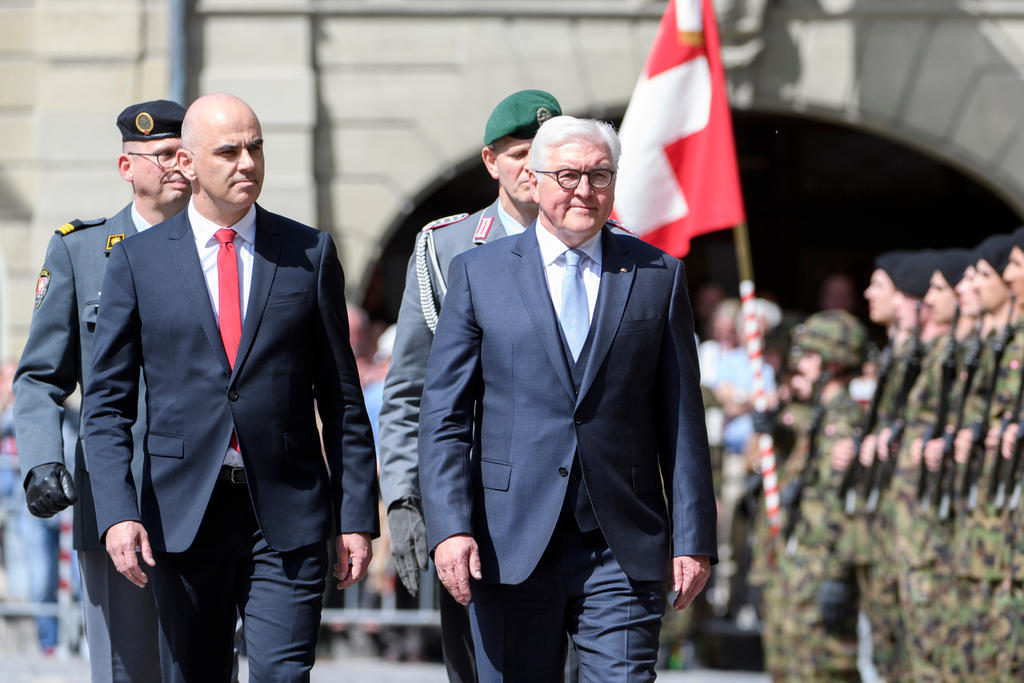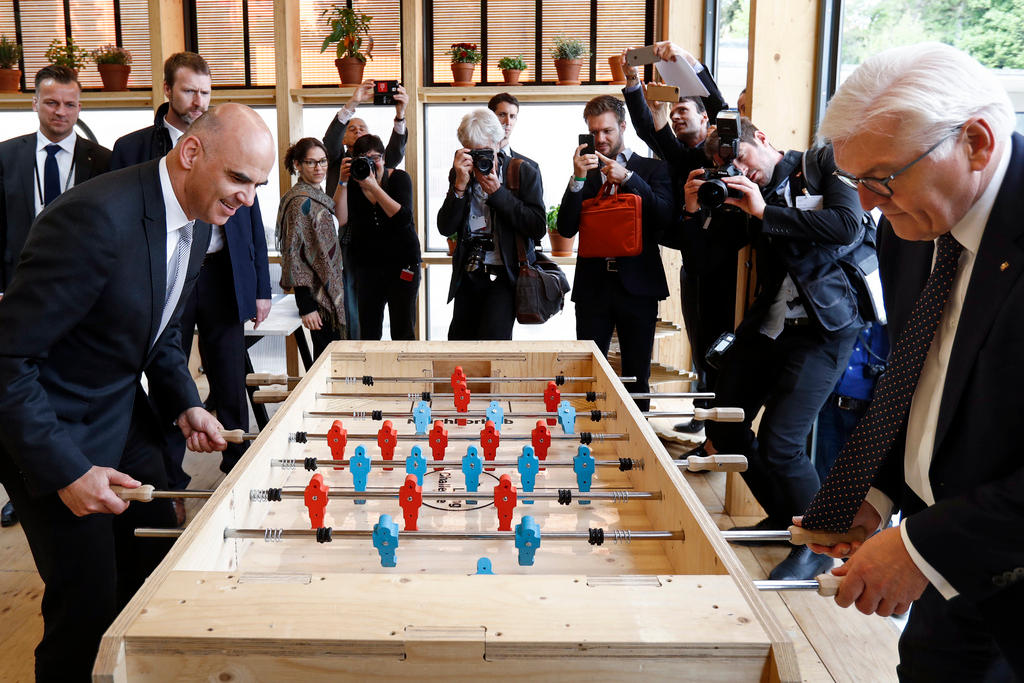
German president wraps up state visit to Switzerland

German President Frank-Walter Steinmeier has concluded a two-day state visit to Switzerland, which centred mainly on bilateral relations and Europe. Germany is Switzerland’s most important trading partner.
On Thursday, the second day of the visit, Steinmeier was taken on a packed itinerary that included a round-table discussion about the future of democracy at the University of Fribourg, and a visit to the ‘NeighborHub’ solar-powered community centre building which won top prize at the US Department of Energy Solar Decathlon event last year.
He also took a helicopter flight over the Aletsch Glacier in canton Valais to learn more about the impact of climate change, before concluding his visit at the grave of German writer Thomas Mann at the Kilchberg cemetery near Zurich.
He also managed to fit in a spot of table football, challending his Swiss counterpart Alain Berset to a game in Fribourg (see photo).

Entente cordiale
It was the first state visit to Switzerland by a German president since 2010.
Steinmeier and his wife were initially welcomed by the Swiss President Alain Berset at Zurich airport on Wednesday, before travelling to the capital, Bern.
Speaking at the parliament buildings in Bern at the end of the first day, Berset and Steinmeier stressed the strength of ties between their two countries.
Steinmeier expressed his pleasure at being received in Switzerland for the first time as President of Germany. He referred to Thomas Mann and his vision of democracy, saying that “without it, Europe has no future”.
Berset said that “nothing can damage our excellent relations, not even a Swiss loss in the next football match”.
Steinmeier also held talks with the seven-member Swiss government, focusing on “bilateral relations, cooperation between the two countries in an international context and European policy”, according to a Swiss government statement.External link
“When I look at Switzerland, I look at a country that is a world leader in business and science… Germany is a friendly country. We are not just good neighbours. We have common interests on which we will continue to work together,” he told public radio SRF in the lead up to his visit.
+ Switzerland through the eyes of a German photographer
The trade factor
Steinmeier, who became German president in February 2017, said he hoped the Swiss do not view the European Union as an enemy. He added that he was hopeful for progress in EU-Swiss talks on a framework agreement.
“I am sure that if such a framework agreement is reached, it will be a win-win situation for both parties, and that is why I would like to see progress,” the 62-year-old Social Democrat declared.
Switzerland is not a member of the EU; economic and other relationships are governed by more than 120 bilateral deals agreed over decades. Brussels wants Switzerland to reorganise its EU relationships around an institutional framework agreement. The institutional framework issue has been dragging on for years and parliament and the seven-member government appear divided over European policy.
Germany is Switzerland’s most important trade partner, both in terms of imports and exports. In 2015, German companies employed around 121,000 people in Switzerland, more than any other country. Swiss companies employ around 425,000 people in Germany (second place behind the Netherlands); in 2016 there were around 62,000 cross-border workers from Germany.
At the end of 2017, 300,000 German nationals were living in Switzerland and 88,000 Swiss nationals were living in Germany.

In compliance with the JTI standards
More: SWI swissinfo.ch certified by the Journalism Trust Initiative

























You can find an overview of ongoing debates with our journalists here . Please join us!
If you want to start a conversation about a topic raised in this article or want to report factual errors, email us at english@swissinfo.ch.